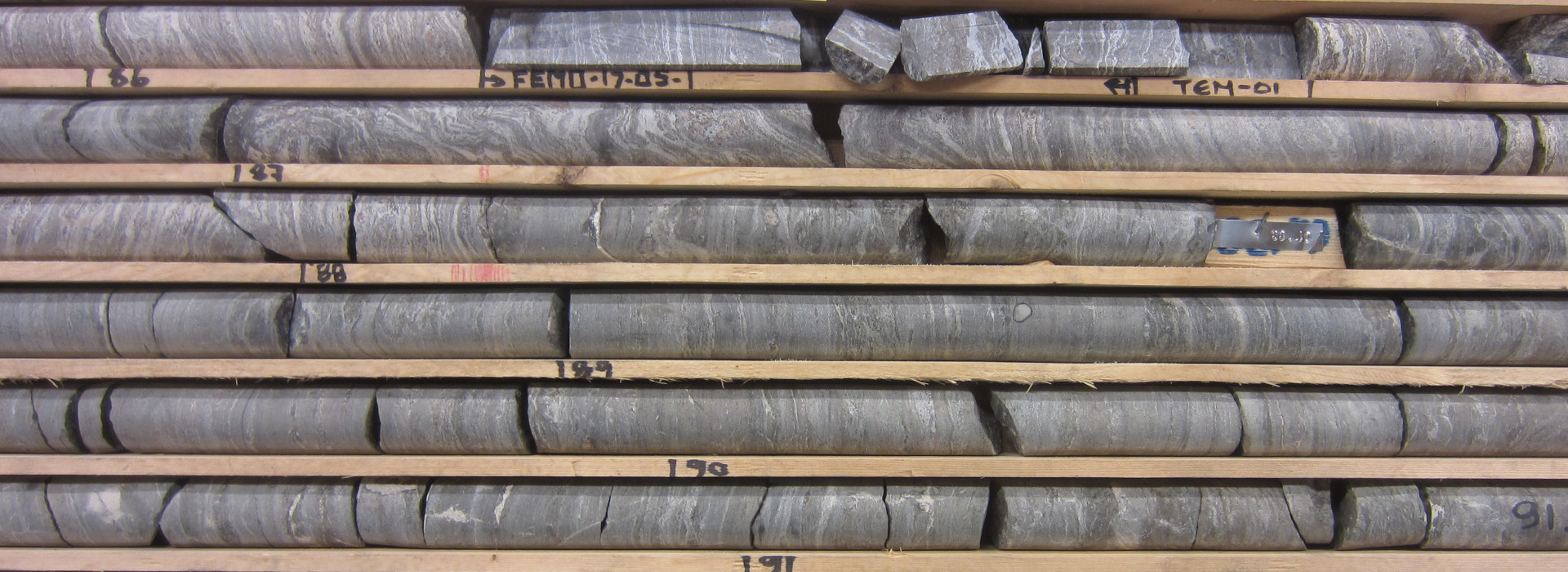Profile

Research
The ongoing energy and technological transitions of modern societies are likely to increase the natural concentrations of technology-critical elements in aquatic environments. Yet, the environmental impact of this rise remains largely unknown and potentially unpredictable, with possible implications for the seasonal and long-term quality of water resources. My research aims to characterize the reactivity (mobility vs. retention) and fate (transfer between sources and storage areas) of technology critical elements, such as metalloids, in hydrological systems. This work combines field-based investigations with newly developed geochemical models, isotope geochemistry, and machine learning approaches to better understand both the natural and anthropogenic behavior of these elements within biogeochemical cycles. Particular emphasis is placed on processes governing sorption kinetics, solid–liquid partitioning, element speciation, carrier phases, and bioaccumulation at continent-ocean transition systems. Overall, this research provides a geochemical foundation for developing digital twins of the environment, improving predictive capabilities for future scenarios, and supporting sustainable water management from local to international scales.
Projects
|
2025-currently |
Post-Doctorate – Institute of Applied Geosciences (AGW) at the Karlsruhe Institute of Technology (KIT). Responsible: Prof. Dr. Stefan Norra. Topic: (1) Development of solutions for the sustainable and climate-adapted management of water resources from the beginning to the end of mining activities (WaMiSAR), and (2) evaluation of the impact of extreme climatic events (flood vs drought) in ground and spring waters to ensure future safety of drinking water supplies (ZuKoWa). Both BMBF projects applied in Namibia/South Africa and in the natural reserve of Bühl (Black Forest, Germany), respectively. Collaborations: with multiple industrial partners (e.g., Impact Catalyst, TZW, Sensatec, Hydroisotop, Aquantec, etc.), local authorities (e.g., Stadtwerke Bühl) and international universities (e.g., University of Potsdam, Technische Hochschule Lübeck, Namibian University of Science and Technology, etc.) related to mining, aquatic chemistry, water quality and microbiology. |
|
2022-2025 |
Post-Doctorate (YiG Prep Pro fellowship) – Institute of Applied Geosciences (AGW) at the Karlsruhe Institute of Technology (KIT). Responsible: Dr. Teba Gil-Díaz Topic: monitoring and modelling of technology critical elements in major waterways of south-west Germany. Collaborations: with the Institute of Geosciences (IGW) at the Friedrich-Schiller-Universität Jena, the Landesanstalt für Umwelt Baden-Württemberg (LUBW), der Amt für Umwelt und Energie (AUE, Switzerland), IME Fraunhofer Institute and the German Environmental Specimen Bank. |
|
2019-2022 |
Post-Doctorate - Institute of Geosciences (IGW) at the Friedrich-Schiller-Universität Jena and the Institute of Nuclear Waste Disposal (INE) at the Karlsruhe Institute of Technology (KIT). Responsible: Prof. Thorsten Schäfer and PD. Dr. Frank Heberling. Topic: The effect of intermolecular forces on the rheology of cement paste during the first hours of hydration: microscopic approach with model silica particles. Collaborations: with the Faculty of Civil Engineering (Bauhaus-Universität Weimar, Weimar) and the Institute of Construction Materials (Universität Hannover – LUH, Hannover). |
|
2015-2019 |
Doctorate in Geochemistry and Ecotoxicology - UMR CNRS 5808 EPOC, Bordeaux, France. Responsible: Prof. Jörg Schäfer. Topic: Biogeochemical behaviour of Sb and Te (as well as for Sn and Se) in ecosystems at the continent-ocean interface of the Garonne-Gironde and Rhône river systems (France): development of dispersion scenarios for radioactive homologues in the hypothetical case of a nuclear accidental release. Collaborations: with the IRSN (Cadarache, France), le Centre Atlantique IFREMER (Nantes, France), the institute of Applied Geosciences (AGW-KIT) and the Institute of Ecopreneurship (University of Applied Sciences and Arts Northwestern Switzerland, FHNW - Bâle). |
Publications
Hellmann, S.; Gil-Díaz, T.; Corte-Rodríguez, M.; Merten, D.; Montes-Bayón, M.; Schäfer, T.
2026. Journal of Analytical Atomic Spectrometry, 41 (1), 173–189. doi:10.1039/d5ja00285k
Zamparas, C.; Gil-Díaz, T.; Eiche, E.
2025, Juli 10. Goldschmidt Conference (2025), Prag, Tschechien, 6.–11. Juli 2025
Zamparas, C.; Gil-Díaz, T.; Schild, D.; Eiche, E.
2023. GeoBerlin (2023), Berlin, Deutschland, 3.–7. September 2023. doi:10.48380/zkzh-zb24
Zamparas, C.; Gil-Díaz, T.; Eiche, E.
2024. GeoSaxonia (2024), Dresden, Deutschland, 23.–26. September 2024. doi:10.48380/behe-rj84
Zamparas, C.; Gil-Díaz, T.; Eiche, E.
2023. GeoBerlin (2023), Berlin, Deutschland, 3.–7. September 2023. doi:10.48380/hzk0-6v11
Ratnayake, S.; Lützenkirchen, J.; Schild, D.; Finck, N.; Eiche, E.; Gil-Díaz, T.; Weerasooriya, R.; Geckeis, H.
2025. Radiochimica Acta, 113 (4), 277–298. doi:10.1515/ract-2024-0334
Gil-Díaz, T.; Trumm, M.
2024. Ecological Informatics, 84, Art.-Nr.: 102877. doi:10.1016/j.ecoinf.2024.102877
Gil-Díaz, T.; Pougnet, F.; Dutruch, L.; Schäfer, J.; Coynel, A.
2024. Marine Chemistry, 267, Art.-Nr.: 104465. doi:10.1016/j.marchem.2024.104465
Gil-Díaz, T.; Pougnet, F.; Labassa, M.; Dutruch, L.; Abdou, M.; Coynel, A.; Eyrolle, F.; Briant, N.; Knoery, J.; Schäfer, J.
2024. Chemosphere, 359, Art.-Nr.: 142266. doi:10.1016/j.chemosphere.2024.142266
Gil-Díaz, T.; Schäfer, J.; Schäfer, T.; Eiche, E.; Eyrolle, F.
2024. Frontiers in Marine Science, 11. doi:10.3389/fmars.2024.1413033
Heberling, F.; Lützenkirchen, J.; Gil-Díaz, T.
2024. Encyclopedia of Solid-Liquid Interfaces, 215–229, Elsevier. doi:10.1016/B978-0-323-85669-0.00087-8
Zamparas, C.; Gil-Díaz, T.; Schild, D.; Eiche, E.
2023. GeoBerlin (2023), Berlin, Deutschland, 3.–7. September 2023
Heberling, F.; Gil-Díaz, T.; Luetzenkirchen, J.
2021. Goldschmidt (2021), Online, 4.–9. Juli 2021. doi:10.7185/gold2021.6054
Link, J.; Sowoidnich, T.; Pfitzner, C.; Gil-Diaz, T.; Heberling, F.; Lützenkirchen, J.; Schäfer, T.; Ludwig, H.-M.; Haist, M.
2020. Materials, 13 (8), Art. Nr.: 1853. doi:10.3390/MA13081853
Gil-Díaz, T.; Heberling, F.; Keller, V.; Fuss, M.; Böttle, M.; Eiche, E.; Schäfer, J.
2020. Journal of environmental radioactivity, 213, Article: 106133. doi:10.1016/j.jenvrad.2019.106133
Gil-Díaz, T.; Schäfer, J.; Keller, V.; Eiche, E.; Dutruch, L.; Mößner, C.; Lenz, M.; Eyrolle, F.
2020. Chemical geology, 532, 119370. doi:10.1016/j.chemgeo.2019.119370
